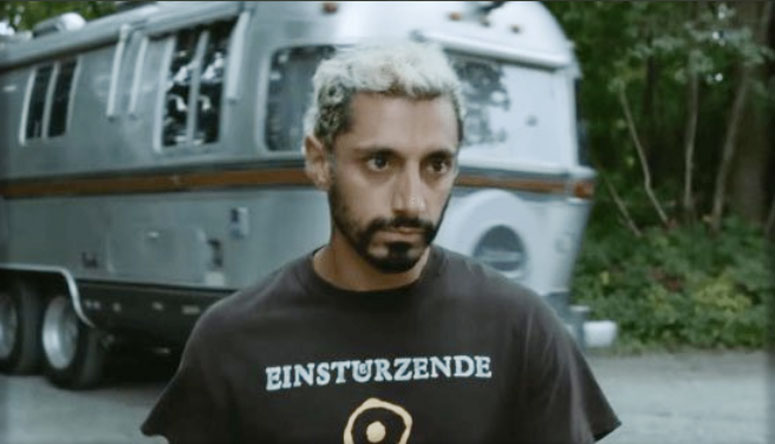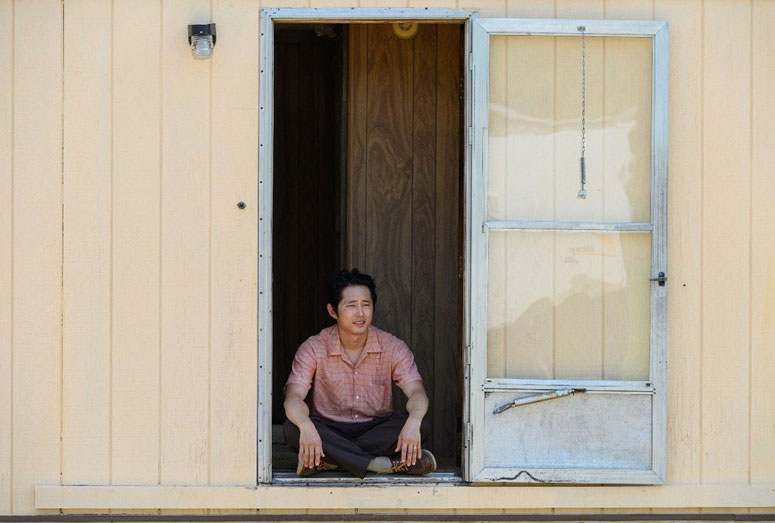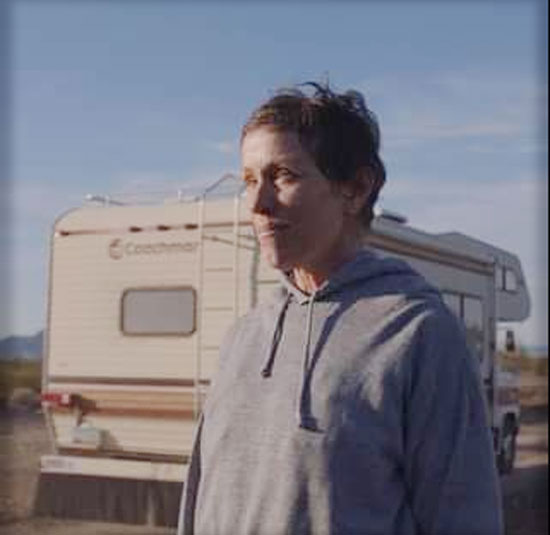An Oscar-worthy trailer mix
Maybe it’s a coincidence that three of the Oscar-nominated films this year deal with characters that spend most of their lives in trailers. Minari, Sound of Metal and Nomadland all follow American characters from varying walks of life, cultures, ethnicities and impairments, but the common thing among them is: they all reside in trailer homes, vans or recreational vehicles (RVs).
Mobility has always been a selling point of American life. Hopping in a vehicle and exploring — as a family, as two dudes on motorcycles in Easy Rider, or as writer Jack Kerouac did with Neal Cassady, spawning the book On the Road — somehow has a distinctly American flavor.
But now, at least in these three films, it has an air of desperation, of struggle, and of rebellion. Has the road trip gone sour, stalled by the side of the road?
It’s tempting to think of these three Oscar nominees as epitaphs for a failed American dream; but each one ends on a faint but transcendent note of personal choice, endurance, or hope that belies the struggles pushing their characters along.
It’s tempting to think of these three Oscar nominees as epitaphs for a failed American dream; but each one ends on a faint but transcendent note of personal choice, endurance, or hope that belies the struggles pushing their characters along.
Sound of Metal
In Sound of Metal, we hop aboard an outfitted van where heavy metal drummer Ruben (the outstanding Riz Ahmed) and songwriter/guitarist girlfriend Lou (Olivia Cooke, also great) live and travel across American between gigs, selling their vinyl, CDs and merch to fans of their extreme metal duo, Blackgammon.
Suddenly, Ruben starts going deaf. His tinnitus — from bashing drums at unholy decibels every night — quickly escalates, causing estrangement from everything that’s kept his life stable. (He’s also a recovering heroin addict; he met Lou during rehab, which adds to the struggle.)

Ruben and Lou are part of one tribal community — the extreme metal subculture — but they rely on one another as a unit to get through recovery. And now Ruben suddenly feels his connection with Lou slipping away, as his hearing disappears.
The tension between how Ruben wants the world to be, and the realization that he must adjust to a radically new life, is gut-wrenching. Fearing Ruben will relapse, Lou leaves him at a rural recovery house for deaf addicts, and there, house manager Joe (Paul Raci) lays down the truth: they can give Ruben the tools to cope with his hearing loss, but they can’t fix all the other things going on in his head.
Sound of Metal uses the various sounds of Ruben’s world — from the deafening splash of drumsticks on cymbals, to the murmured voices he now struggles to decipher in the world around him — as a living, breathing tapestry; it’s Ahmed’s torturous adjustment that makes this a strong, Oscar-worthy performance.
Director/writer Darius Marder captures a little-seen subculture: the lives of indie musicians carving out an alternative American Dream on the road. Lou and Ruben aren’t rich, but they manage to sell enough records to get by. More importantly, they live by their own rules, doing what gives them real pleasure in life.
This is completely upended by a cruel twist of fate — though, really, it’s an occupational hazard — that tests Ruben’s ability to find a true connection with life that doesn’t rely on gadgetry, bargaining, or fake solutions to his problems.
Though reductive at times in its focus on deaf versus not-deaf, Sound of Metal is a powerful gaze at how we learn to accommodate ourselves to life’s challenges.

Minari
Meanwhile, in Lee Isaac Chung’s Minari, a Korean-American family seeks the American Dream on the road. Set in 1983, the Yi family move from Los Angeles to a trailer home in Arkansas, as far from their Asian culture as you can imagine, in an effort to start a farm selling Korean vegetables. Their day jobs — sexing chicks for a commercial chicken hatchery — are McJobs with no future.
Jacob (Steven Yeun from The Walking Dead) tries to convince his wife Monica (Han Ye-ri) to settle in, make the long trailer a home, as he prepares the new agriculture business; she summons her mother Soon-ja (a great Youn Yuh-jung) to come over from Korea and help watch over their two kids, Anne, and David, who has a heart condition.
For a while, it seems Jacob will have the perseverance and luck (with the added faith of an eccentric Korean war vet played by Will Patton) to make the farm a success.
What’s interesting in Minari — which refers to a type of wild-growing Korean parsley — is that, even as it presents the Yi family as outsiders, people you’d think would face all kinds of racial animus in the American South, they actually are more or less accepted with a shrug: they’re just another batch of people trying to master the slipstream of American assimilation.
They don’t expect any special favors; they’re seeking customers within their own community of Korean-Americans.
Jacob tries to understand the allure of local church life, but his faith meets all kinds of challenges, mostly because of a do-or-die need to succeed at his business. Pulling himself and his family up is his only motivation. But he finds that’s not quite enough.
It’s a thoughtful film about an outsider community in American life, where a parked trailer home becomes a metaphor for building something more long-lasting.

Nomadland
Nomadland, meanwhile, focuses on people who are not so much chasing the American Dream as trying to outrun it before it runs them into the ground.
Following a community of itinerant, mostly white contract workers in the 1990s Midwest who live out of their RVs and trailers, it seems to echo the diaspora of America during the Great Depression of the ’30s — when farm workers had to scramble to survive after the Dustbowl devastated crops and jobs.
But this is America nearly a century later. A housing market collapse has left millions without jobs and homes due to skyrocketing mortgages.
Frances McDormand plays Fern, a widow and former teacher who’s now reduced to working at Amazon packing plants across America for short-term contracts, living in her RV where she keeps remnants of the more rooted life she left behind — a set of wedding plates, an urn containing ashes — after her husband died and they lost their home in Nevada.
Fern has come to understand something about her own rootlessness: it makes life easier, roosting for a time with various self-styled “nomads,” a motley assembly of people who’ve been dealt tough cards by life.
But Nomadland, with its semi-documentary feel (Chinese-American director Chloé Zhao cast real nomads to play themselves, often telling their own stories straight to the camera), never depicts them as losers or worthy of pity in any way.
Fern calls herself “houseless,” rather than “homeless.” She bonds with the new people she meets, but never really opens herself up too much, even to a conveniently attentive David Strathairn.
McDormand (also nominated for an Oscar) is the soulful center of this film, her silences saying as much as her words. But it’s the wider landscape, reminiscent of Terrence Malick, that Zhao draws on to best effect: it takes in all of America, including people’s need for transcendence as much as mere security.
The nomads’ words tell the story of life on the road, but their faces tell us even more.


